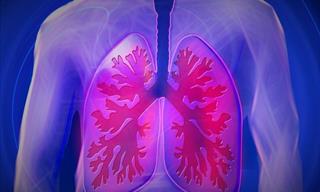Cashews are beloved all around the world for their rich taste and versatility. Native to Central and South America, as well as several Caribbean Islands, these kidney-shaped seeds are sourced from the cashew tree Anacardium occidentale. Originating from Brazil, this topical tree produces large juicy fruits, with small cashew nuts attached at the bottom.
In their raw form, cashews are actually toxic. They contain a substance known as urushiol that's also found in poison ivy. Cashew kernels are processed to remove this toxic substance and access the tasty nuts inside. This is a labor-intensive process, which is the reason why these nuts are so expensive.

Cashews have been enjoyed for thousands of years for their rich nutty flavor and ease of storage. They’re consumed raw, roasted, or salted, and they're full of many beneficial nutrients too!
The Nutritional Profile of Cashews
Curiously, there’s a perception among many that cashews are very high in fat, possibly because of their ultra-rich taste. However, these nuts are actually highly nutritious and have slightly less fat and calories than many other popular nuts, like almonds, peanuts, and walnuts.
Cashews are rich in a variety of nutrients. According to the US Department of Agriculture (USDA), 1 ounce of raw cashews (28.35 grams) contains:
* 157 calories
* 8.56 grams (g) of carbohydrate
* 1.68 g of sugar
* 0.9 g of fiber
* 5.17 g of protein
* 12.43 g of total fat
* 10 milligrams (mg) of calcium
* 1.89 mg of iron
* 83 mg of magnesium
* 168 mg of phosphorus
* 187 mg of potassium
* 3 mg of sodium
* 1.64 mg of zinc.
Cashews also contain vitamins C and B and are high in monounsaturated and polyunsaturated fats.
Health Benefits of Eating Cashews
1. Can promote weight-loss
Cashew nuts are high in calories, proteins, and fiber that make you feel fuller for longer. Studies show that people who follow a nut-rich diet have more success with weight loss and a lower body weight overall compared to those with a nut-free diet. They're also packed with Omega 3 fatty acids that provide a boost to the metabolism.
Furthermore, while one serving of cashews may be high in calories, the human body can absorb only around 84% of these calories, research shows. This is because some of the fat these nuts contain stays wrapped within their fibrous walls. This means that eating raw cashews can help maintain a healthy weight.
2. May improve heart health
Research says that cashew nuts are beneficial for our heart health. One study found that people with type 2 diabetes who ate 30 grams of raw, unsalted cashews daily for 12 weeks had lower LDL (bad) cholesterol to HDL (good) cholesterol ratios than those who didn’t consume these nuts at all. HDL is responsible for absorbing the cholesterol from the heart and transferring it to the liver where it can be broken down. Having a low LDL to HDL ratio is considered good for heart health.
Another study published in The American Journal of Clinical Nutrition found that adding cashews to your diet reduces total and LDL cholesterol levels. It’s believed that the presence of monounsaturated and polyunsaturated fatty acids in cashews helps reduce LDL cholesterol levels, which makes them ideal for reducing the risk of cardiovascular disease.
3. Can help people with diabetes
For people with type 2 diabetes, adding cashews to their diet can be really helpful. We already explained above how these nuts help lower LDL cholesterol levels. In addition, the fiber-rich nut helps prevent blood sugar spikes by releasing glucose more slowly and steadily into the bloodstream.
A 2019 study in the International Journal of Endocrinology and Metabolism revealed that people with type 2 diabetes who consumed 10% of their daily calories from cashews had overall lower insulin levels compared to those who didn’t eat these nuts. Keeping insulin levels down, as you might know, helps with blood sugar management. Hence, adding cashews to your diet might be a good idea.
4. Great for the bones and prevents blood disease
Having cashews daily can be great for your bones and can also help in avoiding blood diseases. This is because cashew nuts are rich in copper – one ounce (about 18 nuts) contains 622 micrograms of the nutrient. Copper deficiency is linked with lower bone mineral density and iron deficiencies like anemia. Also, copper helps in keeping your joints flexible by synthesizing collagen, a protein responsible for healthy joints and skin elasticity.
The magnesium in cashews is also important for bone formation, as it promotes the absorption of calcium by the bones.
Our diet should contain the recommended daily amount of copper (900 micrograms), and cashews can take care of almost 70% of it!
5. Protects the eyes
Cashews contain zeaxanthin and lutein, powerful antioxidants that can protect the eyes. Health experts say that zeaxanthin is a pigment that’s directly absorbed by our retina and is a vital defense against damaging light. These two compounds also inhibit the growth of cataracts and prevent age-related macular degeneration along with cellular damage to your eyes due to unstable molecules called free radicals. Thus, you must try and eat cashews daily for better eye health.
How to add cashews to your diet
Cashews are very easy to add to your diet.
- Toss cashews in scrambled tofu, stir-fries, soups, and stews.
- Add them to your salad, along with lettuce, tomatoes, and olive oil.
- Soak them overnight with almonds and raisins and enjoy in the morning as a filling and healthy snack.
- Prepare with rice in a slow cooker. Add chicken and soy sauce if you want.
- Get cashew butter and spread it on toast. Or stir it into yogurt or oatmeal.
- Combine cashew butter with oats and other dried fruits to prepare yummy energy balls.
Cashews are easily available in grocery stores and should be stored in an airtight container at room temperature. Do remember that these nuts are high in calories. Hence, they're best enjoyed in moderation. Also, roasted and salted cashews have considerable amounts of added oils and salt. So, if your goal is to keep your fat or sodium intake low, then your best option is to go with dry roasted or raw unsalted cashew varieties.
Share this useful post with your loved ones!
 Go to BabaMail
Go to BabaMail





























